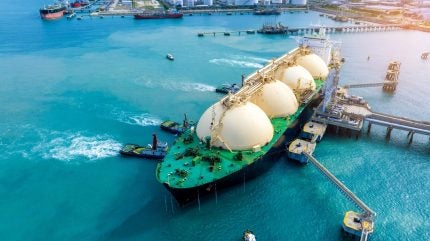
A report from global energy think tank Ember projects a 7% decrease in EU gas demand by 2030, potentially rendering new gas capacity as stranded assets.
This forecast aligns with the current downward trend, with demand already falling from 404 billion cubic metres (bcm) in 2021 to 326bcm in 2023.

Discover B2B Marketing That Performs
Combine business intelligence and editorial excellence to reach engaged professionals across 36 leading media platforms.
Based on EU Member States’ National Energy and Climate Plans, Ember’s analysis also indicates a further decline to 302bcm by 2030.
This contrasts with proposals to expand LNG import capacity by 54% within the same timeframe, suggesting a looming oversupply and financial risk for new gas investments.
The report utilises the latest data from national targets to provide insights into the future of gas demand and other energy sector trends up to 2030.
With the recent submission cycle for national targets concluding last month, the analysis reflects the most current strategic directions of EU Member States.

US Tariffs are shifting - will you react or anticipate?
Don’t let policy changes catch you off guard. Stay proactive with real-time data and expert analysis.
By GlobalDataEmber electricity transition analyst Tomos Harrison said: “National targets send a strong signal: the EU is ditching fossil gas for good. This gas decline is already in progress, and 2030 targets show another strong fall to come.”
Renewable energy sources are set to play a significant role in the EU’s energy mix, with member states planning to double wind and solar capacity in the next five years. This growth trajectory positions renewables to generate two-thirds of the EU’s electricity by 2030.
Additionally, the electrification rate within the EU’s final energy consumption is expected to increase from 23% to 30% by 2030.
This shift is supported by the adoption of electric technologies such as heat pumps, which are replacing traditional fossil fuel-based appliances.
Concerning these energy trends, the European Commission and the Polish Presidency of the Council have also recently launched the Energy Union Task Force.
This strategic initiative aims to enhance cooperation on critical energy policy issues and provide political impetus to address challenges in developing a cohesive Energy Union.



